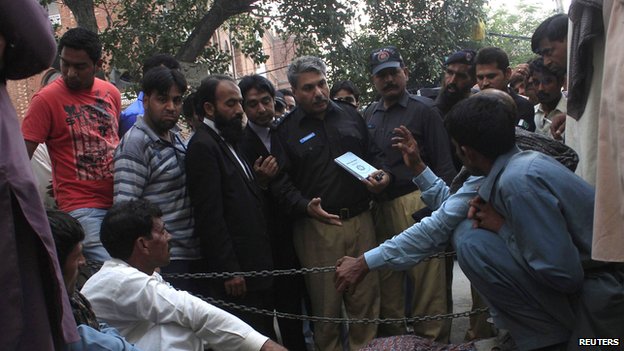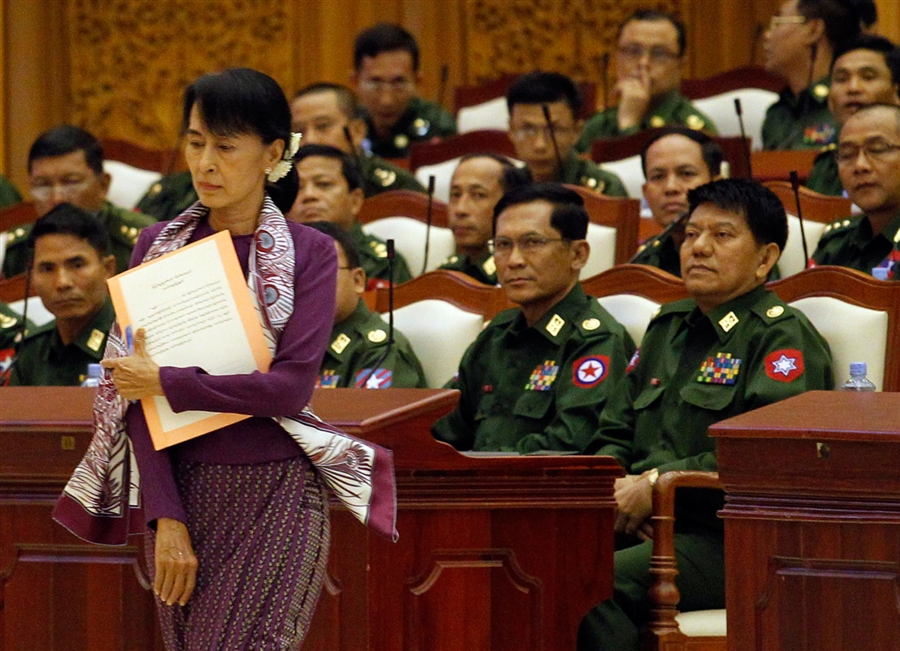On May 27, 2014, Farzana Parveen died soon after being attacked with bricks, stones, and sticks thrown at her by family members, including her father and brothers. The attack took place in front of the Lahore High Court, where Parveen was planning to testify that she had not been kidnapped, as was alleged by her family, but instead married her current husband by her own choice. This claim went against the accusations of her parents and former fiancé.
These types of attacks are called ghairat honor killings in Pakistan. They involve the killing of a relative, most commonly women, who are perceived to have brought dishonor upon the family. Such perceived dishonorable behavior can take many forms as the term “dishonor” can be interpreted in many ways. These include, infidelity, refusal to submit to an arranged marriage, marrying someone the family disapproves of, demanding a divorce, being raped, or even going out alone at night.
In 1990 the Pakistani government passed a law that allows a man the right to, at any time, kill his wife, daughter, sister, following the code of the ghairat honor killings. In 2004, under international and national pressure, Pakistan passed a counter law that made ghairat honor killings punishable by a prison term, or by the death penalty. The effectiveness of this second law is uncertain, since condemned persons may still go unpunished by instead providing monetary compensation to the victim’s family. The law’s efficacy is further weakened by the fact that in many cases the victim and the accused are from the same family.
These uncertainties are a result of the Qisas and Diyat Ordinance in Pakistan. These laws allow the victims and their families control over the crime, including the control to report, prosecute, and testify to a crime. So, crimes like honor killings, in a sense, are privatized, moving from state control to individual control. Qisa is the equal punishment for the crime committed, and diyat is the financial compensation for the crime committed to the victims and their families. The concept of qisa allows a family to pardon a murder for diyat, monetary compensation. In this way, courts may circumvent punishments for honor killings, a fact that weakens the effectiveness of the legal reforms of 2004.
Honor killings can be understood through the deeply entrenched concept of women as property within the social, political, economical aspects of Pakistani society. In addition, the fact that the majority of Pakistan’s tribal regions are semi-autonomous and often led by religious fundamentalists makes it difficult to enforce the 2004 laws. Women in Pakistan are the victims of systematic violations on the basis of their gender, seen specifically through such discriminatory laws.
According to the Human Rights Commission of Pakistan Annual Report, there are about 800 honor killings a year in Pakistan. The specific incident recounted above has sparked particular outcry as it took place in daylight while police and members of the public stood by and did nothing to save Farzana Parveen. International reaction to these events have been negative. Navi Pillay, the United Nations Human Rights chief said she was “deeply shocked” and urged Pakistan’s government to take action. Similarly, United Nations Women Executive Director Phumzile Mlambo-Ngcuka spoke out to condemn the murder of Farzana Parveen and to call for justice in Farzana Parveen’s case. Also, human rights activists gathered in the Pakistani capital, Islamabad, on May 29, 2014to protest against this killing and many more like it.
During her speech to the United Nations World Conference on Women in 1995, Hillary Clinton clearly explained the importance of the state and legal systems in the development of women’s rights, and, furthermore, human rights:
“We also must recognize that women will never gain full dignity until their human rights are respected and protected. Our goals for this conference, to strengthen families and societies by empowering women to take greater control over their own destinies, cannot be full achieved unless all governments, here and around the world, accept their responsibility to protect and promote internationally recognized human rights.”
Given several years after Pakistan passed its first law allowing ghairat honor killings, this speech directly reflects the responsibility of international and national law to protect women from physical and corporal harm, and in turn protect women’s rights as human rights. However, the death of Farzana Parveen demonstrates how much is still left to be done in order for women to be completely protected by the law.




